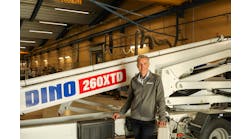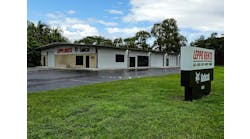Economic Growth to Ramp Up Strongly in Second Half, PCA’s Sullivan Predicts
While the first half of 2013 will grow at less than 2 percent, a relatively sluggish pace, the economy will come on strong in the second half, predicted Portland Cement Association chief economist Ed Sullivan at the World of Concrete show in Las Vegas this week.
During the first half the “hangover” from the fiscal cliff debates will continue to hinder confidence, Sullivan said, although employment will continue to grow at a pace of about 150,000 monthly. However, he said, a number of factors will favor growth. Consumer debt is decreasing and demand for consumer product is increasing strongly as employment is gaining, along with favorable corporate and bank profits, all conditions that bode well for the economy.
Sullivan said a number of worrisome conditions have eased. The U.S. economy did not fall off the fiscal cliff and lawmakers have delayed a showdown over the debt ceiling until the middle of May. The Eurozone did not collapse under the weight of its crushing debt, thanks largely to aggressive moves by the European Central Bank. Also the Chinese economy appears to be headed for a soft landing, rather than a crash, thus easing worries about demand in the world’s second largest economy.
Sullivan said consumer confidence in the economy will strengthen in the second half of 2013. Employment gains have been consistent and underlying fundamentals are improving. In the meantime, home prices are rising and will improve the perceived wealth of consumers. This wealth may be amplified by stock-market gains. And consumer debt service is at an 18-year low. Added clarity in public policy allows business to focus on fundamental longer-term planning and the global outlook is improving. Also banks are healthy, lending risks are lower and policy clarity could translate into a more aggressive lending environment.
Sullivan predicted that delayed business investment caused by political uncertainty will begin to be released in the second half, adding 0.3 percent to real GDP growth. Improved confidence will lead to consumer and business investment increased and employment gains will accelerate to an average of 175,000 to 200,000 monthly. Pent-up demand will lead to growth in car and light truck sales, he said. The inventory of houses will decrease and rising prices will inspire home-builders to increase housing starts. Local taxes will increase as property values will rise. Based on a three-year lag between home prices and employment, the ongoing improvement in prices implies a significant upturn in local spending beginning in 2015.





